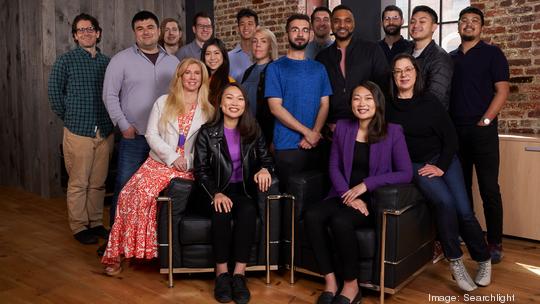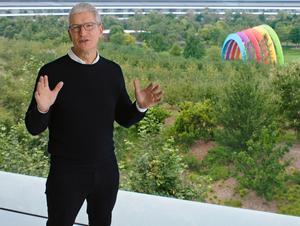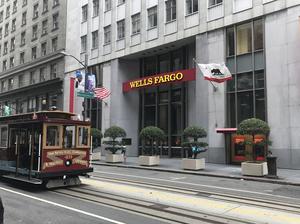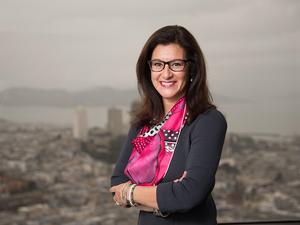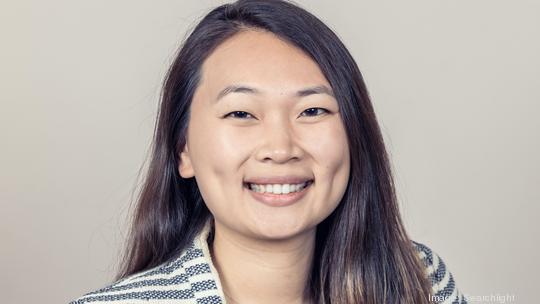
Many of San Francisco's largest employers are trying to bring employees back to the office, but what about startups? The pandemic shifted our work habits, and for some, the transition to fully remote work has become permanent. This is true for a lot of software startups, in particular, which have smaller, more nimble teams and no hardware or research labs that tie them down to a physical location.
Searchlight is bucking that trend.
Twin sisters Kerry and Anna Wang, 26, co-founded the startup in 2018 after going through a frustrating job search together. They had both recently graduated from Stanford, and on paper looked very similar but they actually had different skill sets, interests and career goals. Kerry studied behavior and computer science. Anna studied computer science and AI. Both had worked at Google and McKinsey, as well. However, potential employers treated them like they were the same person. So they started Searchlight to help employers see human talent more holistically from hiring to employee retention.
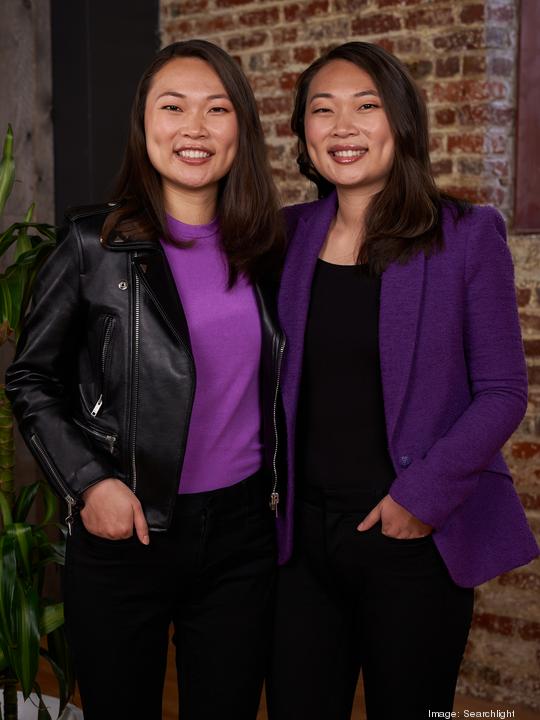
I spoke with CEO Kerry Wang about what the past couple of years has been like for the 25-employee company, how they've adapted to changing work environments and what they hope to get out of a physical office space.
I imagine you've both spent your whole lives dealing with people mistaking you for each other, right? Exactly. I think that's what makes us uniquely suited to even be building Searchlight, which is this better way of understanding people holistically. At our core, everyone just wants to be understood.
How did your team work before the pandemic and what happened after March 2020? We started out in person, and we had this office on Market Street. And then when the pandemic started, it just so happened that our lease went up in May of 2020. We said, “OK, we're not going to renew, let's go into remote work.” And so we went completely remote. It felt just as productive, but we had to make also a lot more effort to still keep that connection. So it became weekly dinners. It became game night. Things like that to keep that connection going so it wasn't just all work but there was also still that play element, and would keep things collaborative and innovative and fun. Then it just so happened that we hired a lot of people during the pandemic.
We had we heard from our team that once everyone was vaccinated, double vaccinated, that they actually wanted to see each other in-person again and they wanted that connection, they wanted that collaboration. So we actually ended up opening our apartment and had the entire team coming to our apartment working out a bit every single day. It got to the point that we were bursting at the seams. There wasn't even enough desk space anymore.
And now you’re opening an 8,000-square-foot office near the Embarcadero? It’s in Jackson Square close to the Ferry Building. We wanted to make sure that it was also very close to public transport given that we have teammates all over the bay. We are still a hybrid workplace. We have very valued team members in places not in San Francisco like Portland and Chicago.
At its peak, how many people were you squeezing into your apartment? Fifteen. Basically, I converted my entire bedroom into an open office space. Anna and I had to move into the same room together, and out of our entire apartment, we had one room as our own personal space and everything else was just open to the team.
How did you maintain productivity when you were all remote? We became much more of a documentation-first culture. It was a way of us staying connected and also inclusive of people who couldn't just overhear things because they’re close by. We want to make sure that everyone has access to information. So, I want to give a shout out to one of our customers, Coda. We’re mutual customers, and it became our documentation hub where we created policies around every project, you know, use this document and keep track of it and have it be linkable to our internal wiki. Every single team had their own hub in Coda. Even if the engineering team had their hub, someone in sales and marketing could still access the engineering hub and check in and see how things were going. So we had to become more documentation first. The one thing that we had to make sure was a constant, even throughout remote work, was this idea of cross functional collaboration. That's the hardest thing to maintain.
How would you define cross functional collaboration, and what are the biggest challenges with that? For example, customer success is so important. We want to make sure that even someone in engineering knows what's happening with our customers and knows how to make them successful. And they can collaborate on shipping out a new feature or responding to a support request. So it's super important that customers and that information is shared. But to prevent meeting fatigue, we don't want a standing meeting on the calendar for everyone. So that's why it's really difficult. We want to make sure we have a meeting-light culture where people can still get their work done but still make sure information is shared openly.
What have you told the team about the new office and expectations for working and showing up? The first thing that we always say to our team, and it's really based on what they've asked us, is that the space is about connection and community. To form community both internally but also externally. Our vision is that this space is open to have a richness of people that we're surrounded with in San Francisco. We plan on doing these events in the office around transformative ideas in the HR space. In terms of the internal teammates, they're asked to come in three days a week. They can pick the days of the week, we're flexible about that.
How are you thinking about making the office a community space as well? Light After Dark is this new event and social series we're doing with a focus on magnifying transformative practices in HR. What are people doing in terms of their HR people processes? We have a private event space that came with this office. It's super cool. And we want to open it up. So we're thinking, like, a monthly series where people who are interested in the latest and greatest with people practices could come get together.
Are you hearing similar things from other startups in the Bay Area that want to have a physical workspace? I really do see a lot of startups moving towards this hub-based hybrid model where they still have people come in-person with this flexibility where you can also work remotely a certain amount of days. When I was looking for office space, I was actually really surprised to see that the market is still really tight. I heard from my broker that only about 1% of commercial real estate is available.
